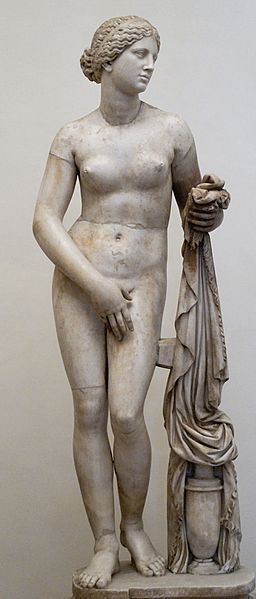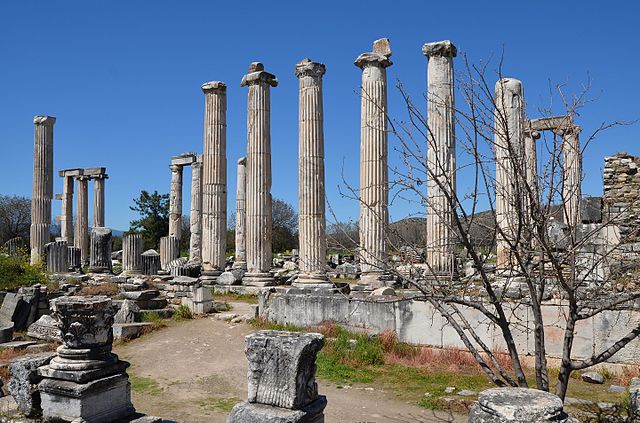Aphroditus or Aphroditos was a male Aphrodite originating from Amathus on the island of Cyprus and celebrated in Athens.
Greek terracotta figurine, late 4th century BC, National Museum of Magna Grecia
Bronze statuette, Roman imperial, 1st-3rd century AD, British Museum
Aphrodite is an ancient Greek goddess associated with love, lust, beauty, pleasure, passion, procreation, and as her syncretized Roman goddess counterpart Venus, desire, sex, fertility, prosperity, and victory. Aphrodite's major symbols include seashells, myrtles, roses, doves, sparrows, and swans. The cult of Aphrodite was largely derived from that of the Phoenician goddess Astarte, a cognate of the East Semitic goddess Ishtar, whose cult was based on the Sumerian cult of Inanna. Aphrodite's main cult centers were Cythera, Cyprus, Corinth, and Athens. Her main festival was the Aphrodisia, which was celebrated annually in midsummer. In Laconia, Aphrodite was worshipped as a warrior goddess. She was also the patron goddess of prostitutes, an association which led early scholars to propose the concept of "sacred prostitution" in Greco-Roman culture, an idea which is now generally seen as erroneous.

The Ludovisi Cnidian Aphrodite, Roman marble copy (torso and thighs) with restored head, arms, legs and drapery support
Early fifth-century BC statue of Aphrodite from Cyprus, showing her wearing a cylinder crown and holding a dove
Aphrodite Ourania, draped rather than nude, with her foot resting on a tortoise (Louvre)
Ruins of the temple of Aphrodite at Aphrodisias






